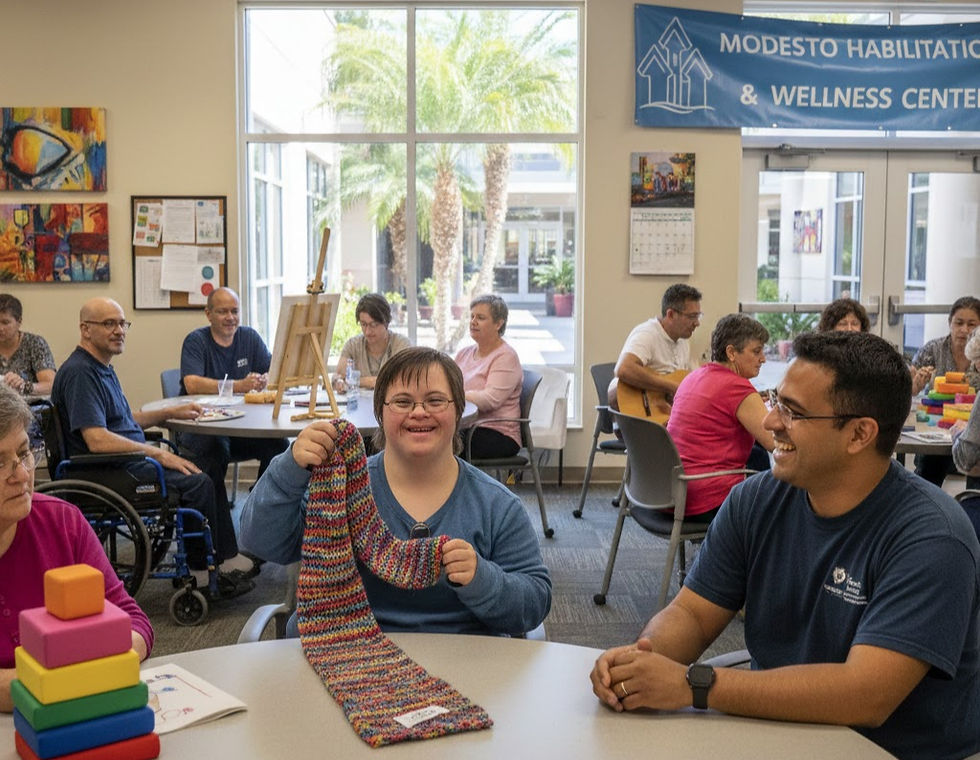The Importance of Accessible Health Resources
- Sep 15, 2025
- 4 min read
Access to health resources is essential for individuals, families, and communities. Unfortunately, not everyone has the same opportunities to find and use these vital resources. Accessibility to health information, services, and support greatly impacts overall well-being. This blog post delves into why accessible health resources are critical in today's society and how they can bring about positive changes in health outcomes.
Understanding Health Resources
Health resources encompass a wide range of services and information designed to promote and maintain health. These include hospitals, clinics, health websites, support groups, and educational materials. The goal is to empower individuals to make informed decisions about their health and well-being.
Statistics reveal that communities with good access to health resources have lower rates of illness and higher overall health levels. For example, a report from the World Health Organization states that one in every three people does not have access to essential health services globally. This gap contributes to disparities in health outcomes based on socioeconomic status, geography, and race.
To mitigate these issues, health resources must be widely available and easily understandable. Community involvement is crucial in creating awareness and ensuring that resources are used effectively.

The Role of Accessible Health Resources
Accessible health resources provide individuals with the information and tools needed to take charge of their health. Ensuring that these resources are available helps to promote:
Informed Decision-Making: Accessible information allows individuals to understand health conditions, treatment options, and preventive measures. For instance, online platforms that offer easy-to-understand health articles can empower users to seek necessary care.
Community Support: Local organizations play a vital role in providing accessible health resources through workshops, health fairs, and support groups. Through these initiatives, people receive not only information but also emotional and social support.
Preventive Care: Accessible health resources can facilitate early diagnosis and treatment. The American Medical Association states that patients who utilize preventive measures, like screenings, generally enjoy improved health outcomes over those who do not.

Barriers to Accessibility
Despite the significance of accessible health resources, several barriers prevent individuals from utilizing them. Recognizing these barriers is crucial for developing solutions:
Geographical Limitations: People living in rural areas often struggle to access quality health services. Long distances to healthcare facilities can discourage individuals from seeking assistance.
Economic Disparities: High costs associated with healthcare services can deter people from seeking medical help. According to the Kaiser Family Foundation, one in four adults reported that they or their family members did not receive needed health care due to cost concerns.
Language and Literacy Issues: Health materials that are not available in multiple languages or formats can exclude non-native speakers and individuals with low literacy skills.
Technological Barriers: A significant portion of the population lacks access to the internet or smartphones, hindering their ability to find online health resources.
Addressing Accessibility Barriers
Efforts to increase accessibility to health resources must focus on reducing barriers. Here are some actionable recommendations to achieve this:
Telehealth Services: Expanding telehealth services allows patients to receive care from the comfort of their homes. Remote consultations can be a game-changer for individuals in rural areas.
Community Initiatives: Encourage local organizations to prioritize accessible health resources. Programs that target low-income neighborhoods can provide health education, screenings, and follow-up care.
Bilingual Resources: Develop health materials in multiple languages and at various literacy levels. Ensure that healthcare providers are trained to communicate effectively with diverse populations.
Subsidized Health Programs: Governments and organizations must implement subsidized health programs to reduce the financial burden on low-income families.

The Impact of Accessible Health Resources
Accessible health resources can transform communities. Analysis highlights several benefits:
Improved Health Outcomes: Communities that prioritize accessible health resources have witnessed decreased rates of chronic diseases such as diabetes and hypertension. Healthier populations lead to lower healthcare costs in the long run.
Stronger Community Bonds: When health resources are available, community members can come together to support one another. Initiatives, such as local health workshops, encourage social interactions and foster interests in healthier lifestyles.
Increased Health Literacy: Enhanced access to health information leads to a more informed populace. Individuals who understand health issues are more likely to engage in preventive care and promote health initiatives within their circles.
Path Forward: Building a Healthier Future
To ensure that everyone has access to health resources, a multifaceted approach is needed. Here are steps that individuals and organizations can take:
Advocacy: Advocate for policies that support health equity and accessibility. Encourage local government to invest in health infrastructure and resources.
Partnerships: Build partnerships between healthcare providers, educational institutions, and community organizations. Collaborative efforts can pool resources and support community health initiatives.
Empower Individuals: Increase awareness about available health resources. Educating individuals on where to find support is vital. Consider workshops or educational sessions to guide residents through available tools.
Feedback Loops: Establish channels for community feedback regarding health services and resources. Regularly assessing community needs ensures that programs remain relevant.
Accessible health resources are foundational for building stronger and healthier communities. By breaking down barriers and increasing awareness, we can create a future where everyone has the tools needed to maintain their health.
Incorporating community health support into our efforts will pave the way for improved health outcomes for all. Let's work together to ensure health resources are accessible to everyone, thereby fostering a healthier, more informed society.











Comments